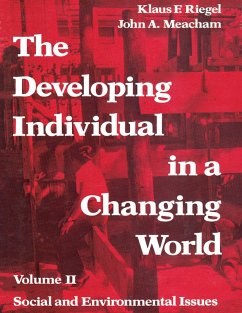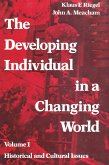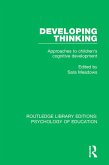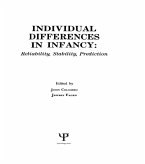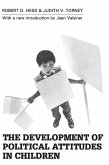Georgy Gounev
The Developing Individual in a Changing World (eBook, ePUB)
Volume 2, Social and Environmental Isssues
50,95 €
50,95 €
inkl. MwSt.
Sofort per Download lieferbar

25 °P sammeln
50,95 €
Als Download kaufen

50,95 €
inkl. MwSt.
Sofort per Download lieferbar

25 °P sammeln
Jetzt verschenken
Alle Infos zum eBook verschenken
50,95 €
inkl. MwSt.
Sofort per Download lieferbar
Alle Infos zum eBook verschenken

25 °P sammeln
Georgy Gounev
The Developing Individual in a Changing World (eBook, ePUB)
Volume 2, Social and Environmental Isssues
- Format: ePub
- Merkliste
- Auf die Merkliste
- Bewerten Bewerten
- Teilen
- Produkt teilen
- Produkterinnerung
- Produkterinnerung

Bitte loggen Sie sich zunächst in Ihr Kundenkonto ein oder registrieren Sie sich bei
bücher.de, um das eBook-Abo tolino select nutzen zu können.
Hier können Sie sich einloggen
Hier können Sie sich einloggen
Sie sind bereits eingeloggt. Klicken Sie auf 2. tolino select Abo, um fortzufahren.

Bitte loggen Sie sich zunächst in Ihr Kundenkonto ein oder registrieren Sie sich bei bücher.de, um das eBook-Abo tolino select nutzen zu können.
This two-volume work levels both criticism and challenge to traditional developmental psychology
- Geräte: eReader
- mit Kopierschutz
- eBook Hilfe
- Größe: 4.24MB
Andere Kunden interessierten sich auch für
![The Developing Individual in a Changing World (eBook, ePUB) The Developing Individual in a Changing World (eBook, ePUB)]() John A. MeachamThe Developing Individual in a Changing World (eBook, ePUB)33,95 €
John A. MeachamThe Developing Individual in a Changing World (eBook, ePUB)33,95 €![Changing the Subject (eBook, ePUB) Changing the Subject (eBook, ePUB)]() Julian HenriquesChanging the Subject (eBook, ePUB)46,95 €
Julian HenriquesChanging the Subject (eBook, ePUB)46,95 €![Changing Families, Changing Responsibilities (eBook, ePUB) Changing Families, Changing Responsibilities (eBook, ePUB)]() Marilyn ColemanChanging Families, Changing Responsibilities (eBook, ePUB)37,95 €
Marilyn ColemanChanging Families, Changing Responsibilities (eBook, ePUB)37,95 €![Developing Thinking (eBook, ePUB) Developing Thinking (eBook, ePUB)]() Developing Thinking (eBook, ePUB)40,95 €
Developing Thinking (eBook, ePUB)40,95 €![individual Differences in infancy (eBook, ePUB) individual Differences in infancy (eBook, ePUB)]() individual Differences in infancy (eBook, ePUB)37,95 €
individual Differences in infancy (eBook, ePUB)37,95 €![Individual Differences in Theory of Mind (eBook, ePUB) Individual Differences in Theory of Mind (eBook, ePUB)]() Individual Differences in Theory of Mind (eBook, ePUB)57,95 €
Individual Differences in Theory of Mind (eBook, ePUB)57,95 €![The Development of Political Attitudes in Children (eBook, ePUB) The Development of Political Attitudes in Children (eBook, ePUB)]() Judith V. Torney-PurtaThe Development of Political Attitudes in Children (eBook, ePUB)46,95 €
Judith V. Torney-PurtaThe Development of Political Attitudes in Children (eBook, ePUB)46,95 €-
-
-
This two-volume work levels both criticism and challenge to traditional developmental psychology
Dieser Download kann aus rechtlichen Gründen nur mit Rechnungsadresse in A, B, BG, CY, CZ, D, DK, EW, E, FIN, F, GR, HR, H, IRL, I, LT, L, LR, M, NL, PL, P, R, S, SLO, SK ausgeliefert werden.
Produktdetails
- Produktdetails
- Verlag: Taylor & Francis eBooks
- Seitenzahl: 361
- Erscheinungstermin: 4. September 2017
- Englisch
- ISBN-13: 9781351483810
- Artikelnr.: 49259587
- Verlag: Taylor & Francis eBooks
- Seitenzahl: 361
- Erscheinungstermin: 4. September 2017
- Englisch
- ISBN-13: 9781351483810
- Artikelnr.: 49259587
- Herstellerkennzeichnung Die Herstellerinformationen sind derzeit nicht verfügbar.
Georgy Gounev
IV: Environmental conditions and the development of the individual
1: The responsive environment: Interdisciplinary developmental issues
A: Environmental Ontogeny: a Cognitive View
B: Environmental Reciprocity: a Socio-Emotional View
C: Histories and Futures: Aspects of a Study of The Child's Relation to the Land and the City
2: Effects of nutrition on development
A: Role of Nutrition in Human Development
B: Malnutrition In Infancy And Intellectual Development
C: Protein Malnutrition in Monkeys
3: Effects of communication media on child development
A: The Means of Instruction in the Attainment of Educational Goals
B: Cognitive Effects of Visual Media
C: Television and the Development of Social Behavior
V: Social organizations and the development of the individual
1: Variations in home-based early education: Language, play, and social development
A: The Construction and Selection of Environments: Design of the Study
B: Play: The Elaboration of Possibilities
C: Language: The Formation of Discourse
D: Social Development: Enriching Connections
E: The Emperor's New Clothes
2: Comparison of model preschool programs
A: Remarks About Curriculum Implementation
B: Short-Term Cognitive Effects of Eleven Preschool Models
C: Dimensional Analysis of Preschool Programs
D: Comparing Model Preschool Programs
VI: Interaction in social groups and the development of the individual
1: Social interaction and personality development
A: Social Perspective-Taking Training
Empathy and Role-Taking Ability of Preschool Children
B: Levels and Patterns of Social Engagement and Disengagement from Adolescence to Middle Adulthood
A: Education as an aid to Adaptation in the Adult Years
D: Interaction of Personality, Ses, and Social Participation in Old Age
D: The Generation Gap: Imagination or Reality?
F: Affluence, Reciprocity, and Solidary Bonds
2: Variations in infant-caretaker interactions
A: Family Interaction in The Newborn Period: Some Findings, Some Observations, and Some Unresolved Issues
B: The Relation of Infant's Temperament and Mother's Psychopathology to Interactions in Early Infancy
C: Mother-Infant Interaction, Attachment, and Mother's Psychopathology
D: Cohort Effects and Apparent Secular Trends in Infant Research
3: Sibling influences on the development of the individual
A: Sibling Position, Sex of Child, and Maternal Involvement
B: On the Extent of Sibling Influence
C: Sibling Interaction and Cognitive Development
D: Social Class, Family Size, and Cognitive Performance
E: The Assessment Of Stability And Change In Peer Interaction Of Normal Hearing And Deaf Preschool Children
1: The responsive environment: Interdisciplinary developmental issues
A: Environmental Ontogeny: a Cognitive View
B: Environmental Reciprocity: a Socio-Emotional View
C: Histories and Futures: Aspects of a Study of The Child's Relation to the Land and the City
2: Effects of nutrition on development
A: Role of Nutrition in Human Development
B: Malnutrition In Infancy And Intellectual Development
C: Protein Malnutrition in Monkeys
3: Effects of communication media on child development
A: The Means of Instruction in the Attainment of Educational Goals
B: Cognitive Effects of Visual Media
C: Television and the Development of Social Behavior
V: Social organizations and the development of the individual
1: Variations in home-based early education: Language, play, and social development
A: The Construction and Selection of Environments: Design of the Study
B: Play: The Elaboration of Possibilities
C: Language: The Formation of Discourse
D: Social Development: Enriching Connections
E: The Emperor's New Clothes
2: Comparison of model preschool programs
A: Remarks About Curriculum Implementation
B: Short-Term Cognitive Effects of Eleven Preschool Models
C: Dimensional Analysis of Preschool Programs
D: Comparing Model Preschool Programs
VI: Interaction in social groups and the development of the individual
1: Social interaction and personality development
A: Social Perspective-Taking Training
Empathy and Role-Taking Ability of Preschool Children
B: Levels and Patterns of Social Engagement and Disengagement from Adolescence to Middle Adulthood
A: Education as an aid to Adaptation in the Adult Years
D: Interaction of Personality, Ses, and Social Participation in Old Age
D: The Generation Gap: Imagination or Reality?
F: Affluence, Reciprocity, and Solidary Bonds
2: Variations in infant-caretaker interactions
A: Family Interaction in The Newborn Period: Some Findings, Some Observations, and Some Unresolved Issues
B: The Relation of Infant's Temperament and Mother's Psychopathology to Interactions in Early Infancy
C: Mother-Infant Interaction, Attachment, and Mother's Psychopathology
D: Cohort Effects and Apparent Secular Trends in Infant Research
3: Sibling influences on the development of the individual
A: Sibling Position, Sex of Child, and Maternal Involvement
B: On the Extent of Sibling Influence
C: Sibling Interaction and Cognitive Development
D: Social Class, Family Size, and Cognitive Performance
E: The Assessment Of Stability And Change In Peer Interaction Of Normal Hearing And Deaf Preschool Children
IV: Environmental conditions and the development of the individual
1: The responsive environment: Interdisciplinary developmental issues
A: Environmental Ontogeny: a Cognitive View
B: Environmental Reciprocity: a Socio-Emotional View
C: Histories and Futures: Aspects of a Study of The Child's Relation to the Land and the City
2: Effects of nutrition on development
A: Role of Nutrition in Human Development
B: Malnutrition In Infancy And Intellectual Development
C: Protein Malnutrition in Monkeys
3: Effects of communication media on child development
A: The Means of Instruction in the Attainment of Educational Goals
B: Cognitive Effects of Visual Media
C: Television and the Development of Social Behavior
V: Social organizations and the development of the individual
1: Variations in home-based early education: Language, play, and social development
A: The Construction and Selection of Environments: Design of the Study
B: Play: The Elaboration of Possibilities
C: Language: The Formation of Discourse
D: Social Development: Enriching Connections
E: The Emperor's New Clothes
2: Comparison of model preschool programs
A: Remarks About Curriculum Implementation
B: Short-Term Cognitive Effects of Eleven Preschool Models
C: Dimensional Analysis of Preschool Programs
D: Comparing Model Preschool Programs
VI: Interaction in social groups and the development of the individual
1: Social interaction and personality development
A: Social Perspective-Taking Training
Empathy and Role-Taking Ability of Preschool Children
B: Levels and Patterns of Social Engagement and Disengagement from Adolescence to Middle Adulthood
A: Education as an aid to Adaptation in the Adult Years
D: Interaction of Personality, Ses, and Social Participation in Old Age
D: The Generation Gap: Imagination or Reality?
F: Affluence, Reciprocity, and Solidary Bonds
2: Variations in infant-caretaker interactions
A: Family Interaction in The Newborn Period: Some Findings, Some Observations, and Some Unresolved Issues
B: The Relation of Infant's Temperament and Mother's Psychopathology to Interactions in Early Infancy
C: Mother-Infant Interaction, Attachment, and Mother's Psychopathology
D: Cohort Effects and Apparent Secular Trends in Infant Research
3: Sibling influences on the development of the individual
A: Sibling Position, Sex of Child, and Maternal Involvement
B: On the Extent of Sibling Influence
C: Sibling Interaction and Cognitive Development
D: Social Class, Family Size, and Cognitive Performance
E: The Assessment Of Stability And Change In Peer Interaction Of Normal Hearing And Deaf Preschool Children
1: The responsive environment: Interdisciplinary developmental issues
A: Environmental Ontogeny: a Cognitive View
B: Environmental Reciprocity: a Socio-Emotional View
C: Histories and Futures: Aspects of a Study of The Child's Relation to the Land and the City
2: Effects of nutrition on development
A: Role of Nutrition in Human Development
B: Malnutrition In Infancy And Intellectual Development
C: Protein Malnutrition in Monkeys
3: Effects of communication media on child development
A: The Means of Instruction in the Attainment of Educational Goals
B: Cognitive Effects of Visual Media
C: Television and the Development of Social Behavior
V: Social organizations and the development of the individual
1: Variations in home-based early education: Language, play, and social development
A: The Construction and Selection of Environments: Design of the Study
B: Play: The Elaboration of Possibilities
C: Language: The Formation of Discourse
D: Social Development: Enriching Connections
E: The Emperor's New Clothes
2: Comparison of model preschool programs
A: Remarks About Curriculum Implementation
B: Short-Term Cognitive Effects of Eleven Preschool Models
C: Dimensional Analysis of Preschool Programs
D: Comparing Model Preschool Programs
VI: Interaction in social groups and the development of the individual
1: Social interaction and personality development
A: Social Perspective-Taking Training
Empathy and Role-Taking Ability of Preschool Children
B: Levels and Patterns of Social Engagement and Disengagement from Adolescence to Middle Adulthood
A: Education as an aid to Adaptation in the Adult Years
D: Interaction of Personality, Ses, and Social Participation in Old Age
D: The Generation Gap: Imagination or Reality?
F: Affluence, Reciprocity, and Solidary Bonds
2: Variations in infant-caretaker interactions
A: Family Interaction in The Newborn Period: Some Findings, Some Observations, and Some Unresolved Issues
B: The Relation of Infant's Temperament and Mother's Psychopathology to Interactions in Early Infancy
C: Mother-Infant Interaction, Attachment, and Mother's Psychopathology
D: Cohort Effects and Apparent Secular Trends in Infant Research
3: Sibling influences on the development of the individual
A: Sibling Position, Sex of Child, and Maternal Involvement
B: On the Extent of Sibling Influence
C: Sibling Interaction and Cognitive Development
D: Social Class, Family Size, and Cognitive Performance
E: The Assessment Of Stability And Change In Peer Interaction Of Normal Hearing And Deaf Preschool Children
